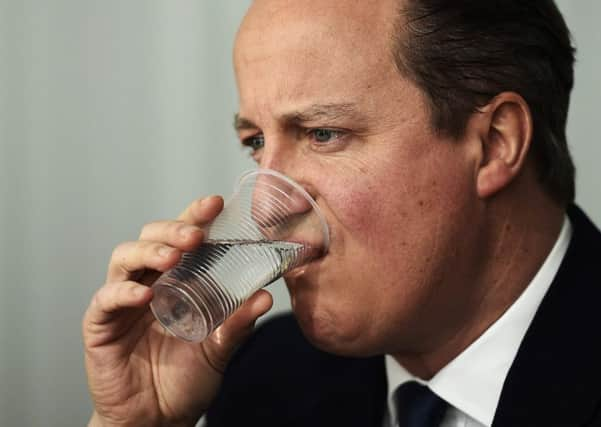YP Comment: Can David Cameron win on Europe? PM's '˜make or break' weekend


If the choreography had gone to plan following weeks of shuttle diplomacy, the Prime Minister would have been accused of betraying Britain’s interests and making too many concessions to his European counterparts.
Yet, the longer the negotiations went on, the greater the perception – certainly here – that Europe’s leaders do not comprehend this country’s mistrust for the EU as an institution or its ability to reflect the wishes of the British people who do not want their lives governed by unelected Brussels bureaucrats as migration becomes the continent’s defining issue.
Advertisement
Hide AdAdvertisement
Hide AdOf course, it should be pointed out that neither the EU, nor the Prime Minister himself, ever envisaged this summit – the assumption had been that the UK would return another coalition last May and which would spare Mr Cameron from honouring his promise to give the British people the final say on an issue which has polarised opinion from the moment French president Charles de Gaulle vetoed the UK’s initial application to join the fledgling EEC in 1963.
This was further conflicted by Mr Cameron’s apparent haste – he wants an early referendum to deny momentum to the Brexit movement – coinciding with a desperate humanitarian crisis, with far-reaching consequences for all, as southern European countries become overwhelmed by the influx of refugees from the war-torn Middle East.
Yet the confluence of these events shows the extent to which the EU’s inflexibility has been exposed by the Syria conflict – and that the relaxation of border controls will have far-reaching consequences long after Mr Cameron’s fate has been sealed.
However, two further points now merit further reflection. First, leaders cannot expect to be at their most lucid after spending most of the night haggling over impenetrable technical points which will still be open to interpretation long after the agreed communiqué has been published.
Advertisement
Hide AdAdvertisement
Hide AdSecondly, Mr Cameron’s deliberations also highlighted deep divisions in both the In and Out campaigns because of the personalities of the key protagonists. This unedifying struggle only makes it harder for voters to make sense of the issues.
As such, the diplomatic events of the past 48 hours have made the final outcome even more difficult to call – especially as the rival agendas of Mr Cameron and the EU have not corresponded with the electorate’s desire for more time to be afforded to those day-to-day policies exercising so many families and businesses across Yorkshire. This failure help explain not only why this renegotiation has become so unsatisfactory to so many, but why David Cameron now faces arguably the most challenging weekend of his premiership, one which will come to define his leadership, as he attempts to bridge the growing divide between Europe, a fractious Tory party and a volatile UK electorate.
111 on life support: Toddler death haunts Jeremy Hunt
THE remainder of Jeremy Hunt’s stint as Health Secretary will be haunted by the death of tragic toddler William Mead after staff at the 111 helpline failed to diagnose a life-threatening condition in time to save the child’s life.
After an inquiry into William’s death revealed shortcomings in out-of-hours care, shortcomings now compounded by subsequent allegations of call handlers with little or no medical training falling asleep because of the pressure of work, Mr Hunt cannot escape political responsibility – he was, after all, Health Secretary when the little boy died in December 2014.
Advertisement
Hide AdAdvertisement
Hide AdThis is made even more pressing by the withering assessment of Professor Neena Modi who warns today that the helpline may not be “safe and effective” for diagnosing life-threatening illnesses like sepsis in this instance, or other forms of meningitis. Her diagnosis – “when we try and take short cuts, things go wrong” when children are assessed over the phone by individuals without full access to a patient’s medical history – has greater significance because she is Britain’s most senior paediatrician.
Even though Mr Hunt is on borrowed time because of his stand-off with junior doctors, and waiting to be switched to a new role in the Cabinet reshuffle that will follow the EU referendum, he must use his last weeks in office to ensure that the 111 service is fit for purpose. A failure to do so will only lead to public confidence in this service being eroded further – and overstretched hospital A&E units being forced to treat even more people with minor ailments rather than being allowed to focus exclusively on the most serious cases.